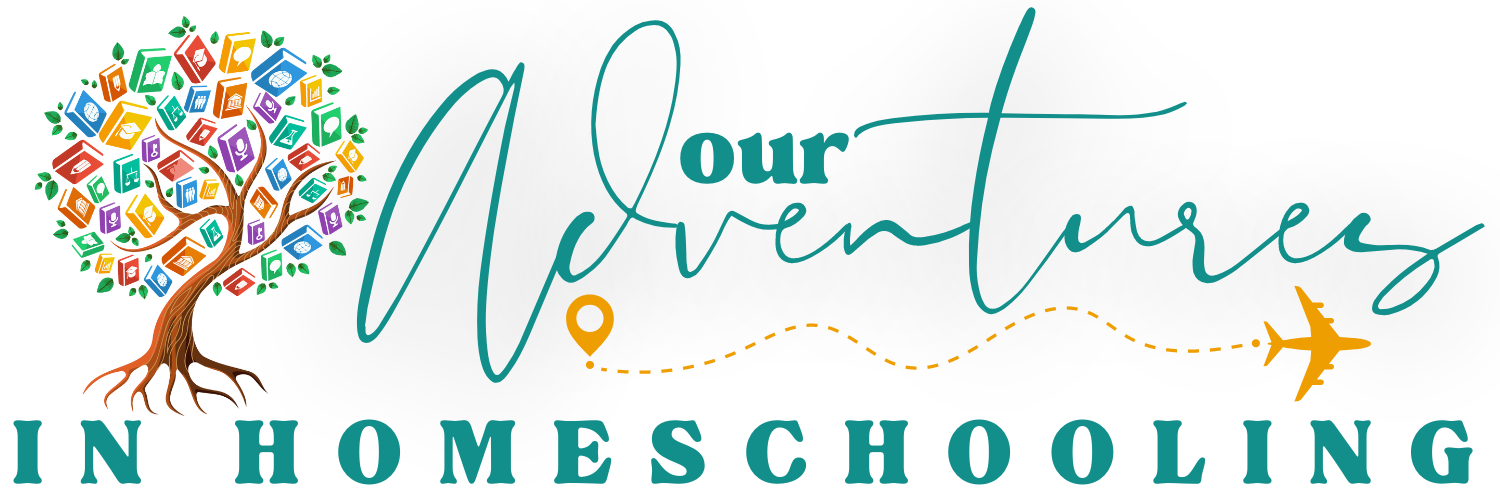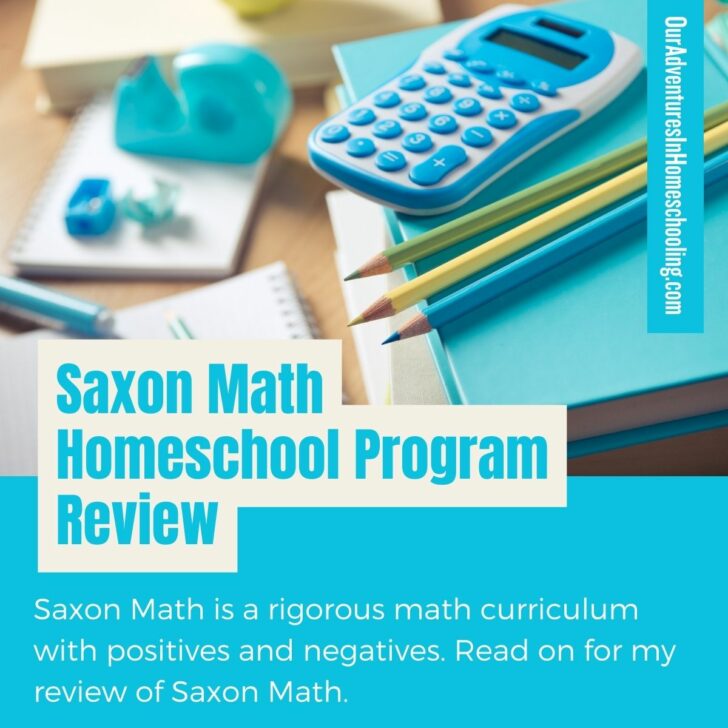Choosing the right math curriculum for homeschooling can be a daunting task, given the plethora of options available. Saxon Math is a well-established and highly regarded choice among homeschooling families.
In this blog post, we will provide an in-depth overview of the Saxon Math Homeschool Program, discussing its philosophy, structure, teaching methodology, and its advantages and disadvantages.
Table of Contents
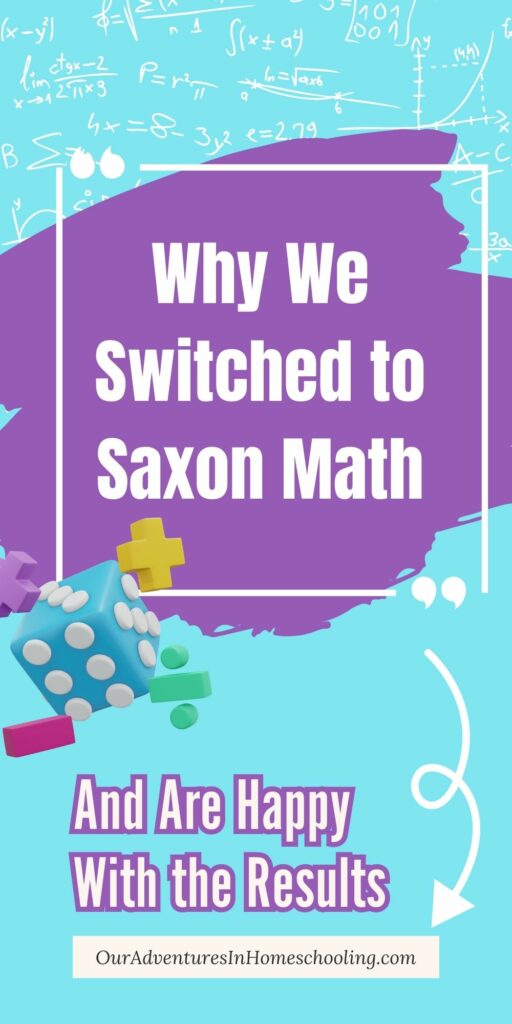



Why We Switched to Saxon Math
For the last several years we have been avid Teaching Textbooks fans! Math is not my strong suite so it’s something I prefer to pass off to someone more qualified. That’s the nice thing about homeschooling– I don’t have to teach it all, I just need to find the right expert to teach my kids.
After trying lots of different programs, we landed on Teaching Textbooks and it worked great for several years. However, my son started 6th grade this year and I started to worry about whether Teaching Textbooks would be rigorous enough for him since he plans on going into engineering.
I’ve always been curious about Saxon Math because I’ve heard other homeschool parents rave about it’s results. But, teaching it myself was holding me back because I REALLY didn’t want to teach math!
Over the summer I attended the Southeastern Homeschool Expo and attended a session on teaching math to your middle schooler with ease. The presenter was Nicole the Math Lady. Before this session I had never heard of her…but sitting through her session sold me on the Saxon Math Program. I decided right then and there that we would be switching from Teaching Textbooks to Saxon Math and I would be using her program to teach my kids.
Saxon Math Philosophy
Saxon Math is built upon the philosophy of incremental development and mastery learning. This means that the curriculum introduces mathematical concepts gradually, allowing students to master each concept before moving on to the next.
This incremental approach aligns with the spiral method of learning, where concepts are continually revisited to reinforce understanding.
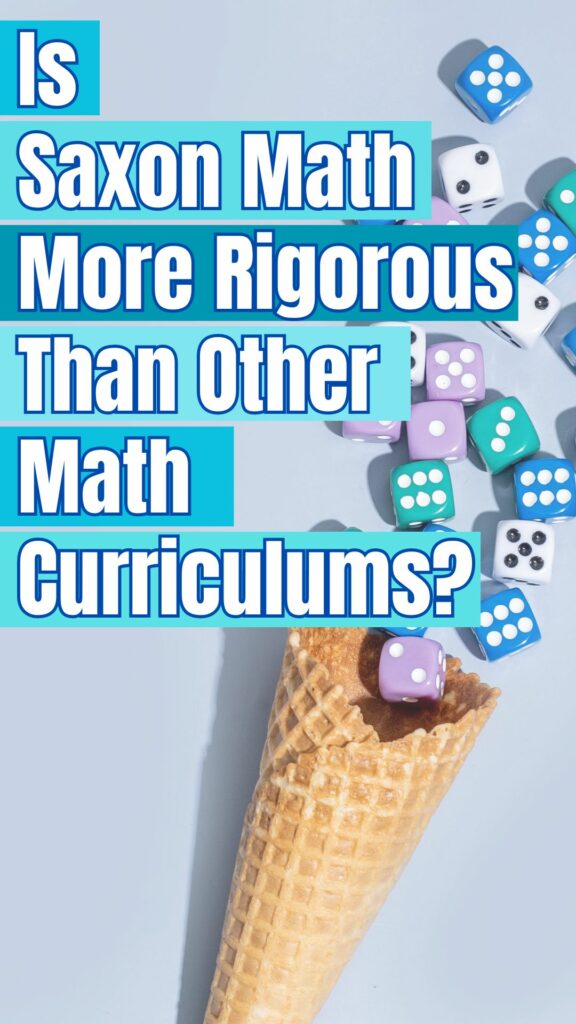



Curriculum Structure
The Saxon Math Homeschool Program is structured in a series of grade-specific textbooks, starting from Kindergarten and continuing through high school. Each grade level consists of three components:
- Student Textbook:
- This is the core of the program, where students learn and practice mathematical concepts. Lessons include clear explanations, examples, and problem sets.
- Homeschool Testing Book:
- This book provides assessments to gauge students’ understanding and progress. It includes daily practice and cumulative assessments.
- Solutions Manual
- The solutions manual contains step-by-step solutions to all the problems in the student textbook, which helps parents as they support their children’s learning.
Saxon Math Teaching Methodology
Saxon Math employs a highly structured teaching methodology:
- Daily Lessons:
- Students are expected to complete a set number of problems each day.
- The consistent daily practice reinforces concepts and helps in long-term retention.
- Incremental Approach:
- New concepts are introduced gradually, and previous concepts are continuously reviewed.
- This approach fosters mastery of skills before moving on.
- Spiral Review:
- Frequent review of previously taught concepts ensures that students do not forget what they have learned.
- Cumulative Assessments:
- Periodic assessments are used to check and reinforce a student’s understanding of all concepts covered in the curriculum.
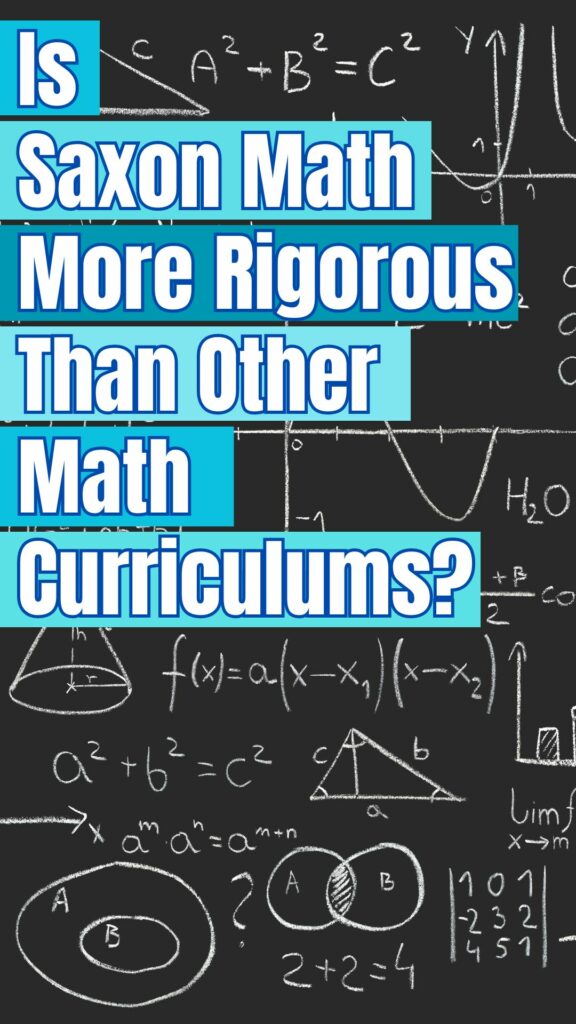



Advantages of Saxon Math Homeschool Program
Saxon Math has earned its popularity among homeschooling families for several compelling reasons:
- Mastery Learning
- The incremental approach ensures that students have a solid grasp of concepts before moving on.
- This results in a strong foundation in mathematics.
- Rigorous Content
- The curriculum is known for its rigor and thoroughness, preparing students well for standardized tests and future math courses.
- Easy-to-Follow Structure
- The structured daily lessons, testing materials, and solutions manual provide clear guidance for both students and parents.
- Long-Lasting Retention
- The spiral review approach helps students retain and apply mathematical concepts over the long term.
- Proven Success
- Many students using Saxon Math excel in math competitions and perform exceptionally well in higher education.
Disadvantages of Saxon Math Homeschool Program
While Saxon Math offers numerous benefits, it may not be the best fit for every homeschooling family:
- Time-Consuming
- Some families find the daily problem sets to be time-consuming, which may not align with their homeschooling schedule.
- Repetitive for Some Learners
- The constant review and practice may be monotonous for students who grasp concepts quickly, leading to a lack of engagement.
- Minimal Hands-On Activities
- Saxon Math is primarily workbook-based, which may not cater to students who benefit from hands-on and interactive learning.
Is Saxon Math Common Core?
Saxon Math is not aligned with the Common Core State Standards (CCSS). The Common Core State Standards is an educational initiative that outlines specific learning goals in mathematics and English language arts for students in K-12 education. It was adopted by many states in the United States as a way to standardize and improve the quality of education across the country.
Saxon Math has its own curriculum and teaching philosophy, which is distinct from the Common Core standards. While some educational publishers and curricula have been designed to align with the Common Core standards, Saxon Math has traditionally followed its own approach to mathematics education, focusing on incremental development and mastery learning.
It’s important to note that the choice of a math curriculum, whether aligned with Common Core or not, depends on the preferences and goals of the homeschooling family. Some families prefer curricula that adhere to the Common Core standards, while others opt for alternative programs like Saxon Math. The key is to choose a curriculum that best suits the needs and educational objectives of the students.
Is Saxon Math a Secular Math Program?
Saxon Math is generally considered a secular curriculum. It does not incorporate religious content or teachings into its math materials. Saxon Math is known for its focus on mathematics instruction and its structured, incremental approach to teaching math concepts.
Secular curriculum materials are designed to be free from religious influence or content, making them suitable for a wide range of educational settings, including public schools and homeschooling environments where religious instruction is not a primary focus. Saxon Math’s main goal is to provide a comprehensive and effective math education, and it does not have a religious agenda.
However, it’s important to remember that there are different editions and versions of Saxon Math, so it’s always a good idea to review the specific materials you plan to use to ensure they align with your preferences and educational goals. If you have specific concerns or questions about the content of a particular edition of Saxon Math, you may want to contact the publisher or a representative to obtain detailed information about the materials.
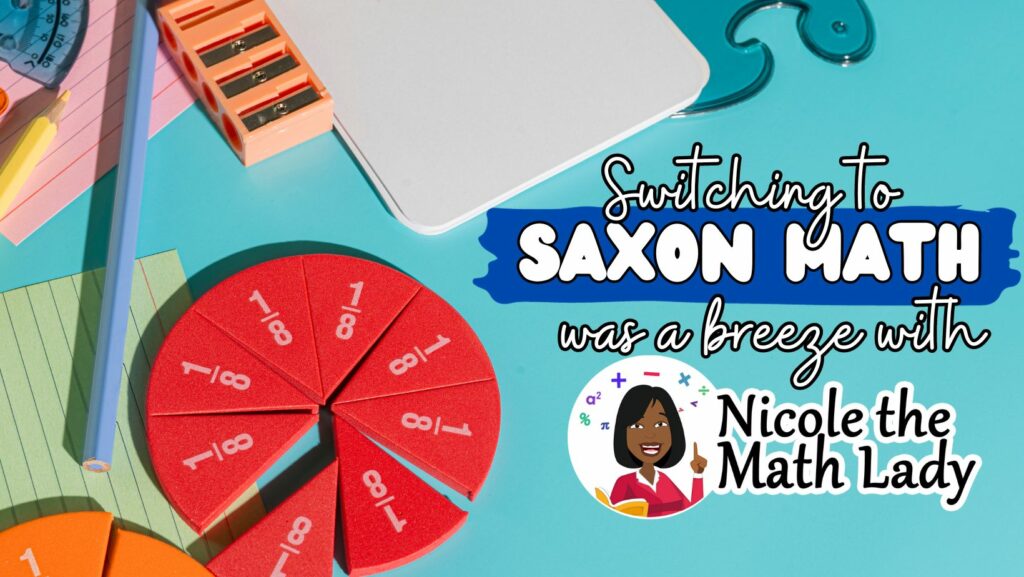



Customizing Saxon Math
Homeschooling parents have the flexibility to customize the Saxon Math program to suit their child’s learning style and pace. Additional resources, such as manipulatives, supplemental books, and online resources, can be incorporated to enhance the learning experience.
We actually pair our Saxon Math Curriculum with Nicole the Math Lady’s online classes. Her energy is a perfect fit for keeping my kids engaged and learning. Her lessons are broken down into bite-size pieces so kids truly understand the concepts. Check out my full review of Nicole the Math Lady here.
The Saxon Math Homeschool Program is a well-respected and rigorous curriculum that emphasizes mastery learning through an incremental and spiral approach. While it may not be suitable for every homeschooling family due to its structured nature, it has proven to be highly effective in building a strong foundation in mathematics.
Ultimately, the success of any math curriculum depends on its alignment with a student’s learning style and goals, so it’s essential for parents to carefully consider their child’s needs when selecting a program.
